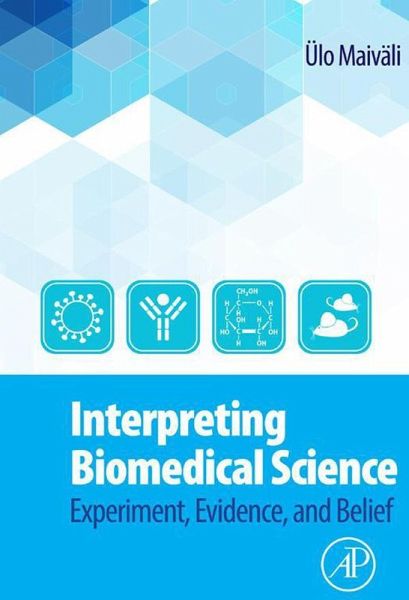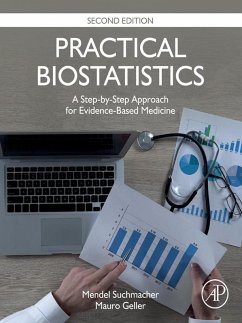
Interpreting Biomedical Science (eBook, ePUB)
Experiment, Evidence, and Belief
Versandkostenfrei!
Sofort per Download lieferbar
47,95 €
inkl. MwSt.
Weitere Ausgaben:

PAYBACK Punkte
24 °P sammeln!
Interpreting Biomedical Science: Experiment, Evidence, and Belief discusses what can go wrong in biological science, providing an unbiased view and cohesive understanding of scientific methods, statistics, data interpretation, and scientific ethics that are illustrated with practical examples and real-life applications. Casting a wide net, the reader is exposed to scientific problems and solutions through informed perspectives from history, philosophy, sociology, and the social psychology of science. The book shows the differences and similarities between disciplines and different eras and ill...
Interpreting Biomedical Science: Experiment, Evidence, and Belief discusses what can go wrong in biological science, providing an unbiased view and cohesive understanding of scientific methods, statistics, data interpretation, and scientific ethics that are illustrated with practical examples and real-life applications. Casting a wide net, the reader is exposed to scientific problems and solutions through informed perspectives from history, philosophy, sociology, and the social psychology of science. The book shows the differences and similarities between disciplines and different eras and illustrates the concept that while sound methodology is necessary for the progress of science, we cannot succeed without a right culture of doing things. - Features theoretical concepts accompanied by examples from biological literature - Contains an introduction to various methods, with an emphasis on statistical hypothesis testing - Presents a clear argument that ties the motivations and ethics of individual scientists to the success of their science - Provides recommendations on how to safeguard against scientific misconduct, fraud, and retractions - Arms young scientists with practical knowledge that they can use every day
Dieser Download kann aus rechtlichen Gründen nur mit Rechnungsadresse in A, B, BG, CY, CZ, D, DK, EW, E, FIN, F, GR, HR, H, IRL, I, LT, L, LR, M, NL, PL, P, R, S, SLO, SK ausgeliefert werden.













